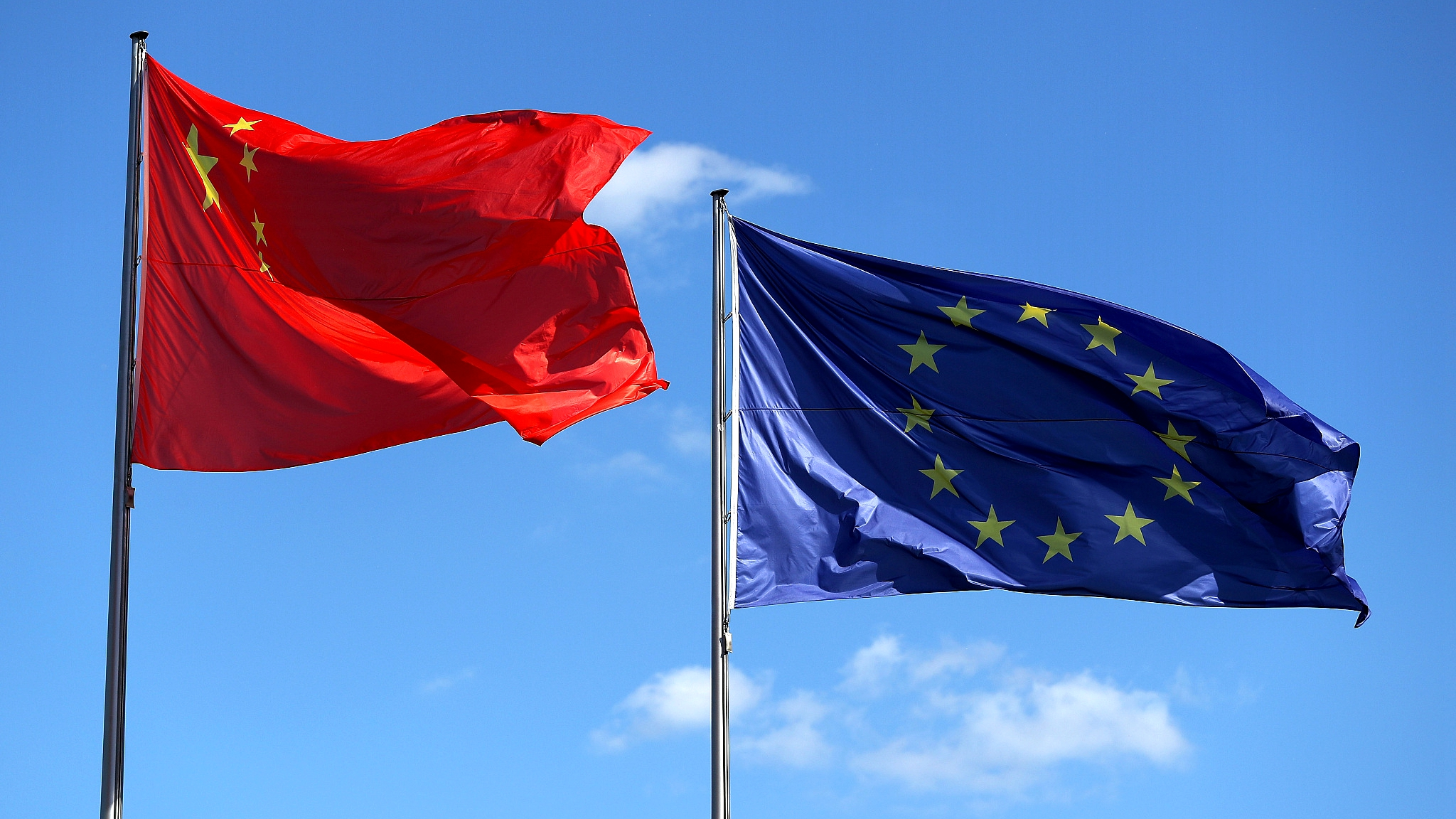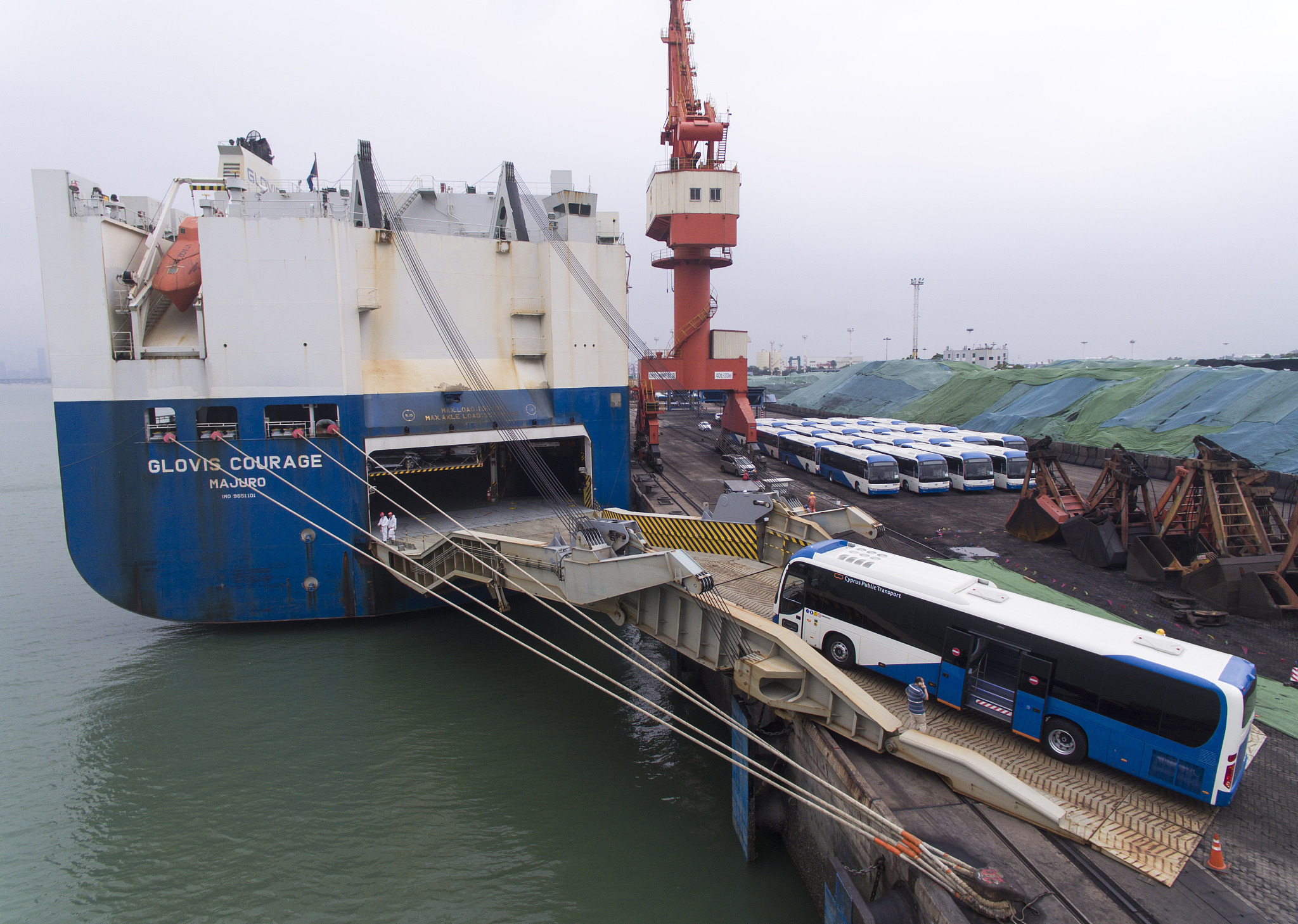
Editor's note: Hannan Hussain is a foreign affairs commentator and author. He is a Fulbright recipient at the University of Maryland, the U.S., and a former assistant researcher at the Islamabad Policy Research Institute. The article reflects the author's opinions and not necessarily the views of CGTN.
Brussels and Beijing's shared determination to broaden market access for companies, and ramp up bilateral investment prospects, paid off with the political approval of the long-awaited Comprehensive Agreement on Investment (CAI) on December 30.
Top European Union officials, accompanied by German Chancellor Angela Merkel and French President Emmanuel Macron, joined Chinese President Xi Jinping in a video exchange, welcoming a range of sector-by-sector commitments for the world's two major economies under a "values-based investment relationship." It took seven years of sustained negotiations to successfully conclude the deal by the turn of 2020, a stated deadline.
This leaves the door open for Europe's unprecedented market access in China, increased manufacturing and financial sector cooperation with the Asian country, as well as a range of mutually negotiated investment, trade, labor and competition safeguards that strike at the heart of an enduring, rules-based economic relationship.
In terms of greater market access, China delivered on its promise of expanding the net of European business operations in the country by supporting investment footprints in sectors such as real estate, manufacturing, electric cars, finance, international maritime transport, telecom cloud services, construction services and airline reservation systems.
Some of these industry sectors, based on government statistics as well as international estimates, are among the most rapidly expanding and lucrative investment sectors in the world, with a hefty stake in China's overall record-breaking foreign direct investment surge this year.
Through CAI, they afford even more fertile ground to scale up business operations of pre-existing European firms in China, as well as scores of European investors desirous of high-capacity production in the world's second-largest economy.
"China has committed to an unprecedented level of market access for EU investors, giving European businesses certainty and predictability for their operations," said the EU in a statement. "EU companies will henceforth benefit … when competing in the Chinese market."
European investments in China – aggregated over two decades – stand in excess of $172 billion, as China overtook the U.S. to become Brussels' largest trading partner for the better part of this year.
As of November 2020, $581.27 billion worth of trade sat between China and the European Union. This is roughly the equivalent of Beijing's total trade volume with the whole of North America during the same period, in advance of CAI's successful negotiations. On a daily scale, two-way commerce between the EU and China is valued beyond $1.2 billion.
Experts have also long-argued that the European bloc's interest in investing and producing in China is accompanied by efforts to strengthen global value chains as a whole. From Beijing's perspective, this goal is inextricably linked to its own multilateral worldview.

200 King Long buses are being exported to Cyprus from Xiamen port, Fujian Province, China. /VCG
200 King Long buses are being exported to Cyprus from Xiamen port, Fujian Province, China. /VCG
Where the Comprehensive Agreement on Investment stands apart from prior pacts is how it clearly outlines the parameters for fair, high-level competition between both sides.
For instance, China and the EU have agreed to pursue a negotiated consensus on topics of financial regulation, state-owned enterprises, enforceable performance standards, and legally binding market access commitments. More importantly, these are grounded in reciprocal access, and backed by multiyear monitoring. A rigorous technical review of the agreement text is expected hereon by both parties to accelerate CAI's timely signing.
Existing instruments such as China's Foreign Investment Law and EU's trade defense tools contribute to legal enforcement pursuits, having consistently filtered security risks that may threaten investor confidence in markets as they open up to more foreign investments.
The anticipated signing of CAI is also roundly consistent with the parliamentary ratification processes and legal deliberations within the EU and Beijing, laying the groundwork for its prospective implementation by 2022.
Another aspect exclusive to CAI is its embrace of Sustainable Development principles while ushering multi-sector investments from both sides.
Binding commitments on environment and climate change, including compliance with the Paris Agreement, afford space to speed-up green development prospects, especially with the EU welcoming China's pivot towards carbon neutrality by 2060, and some heads of state planning a visit to Beijing on environment cooperation.
Note that both Beijing and Brussels have operated without compromise on labor and environment protection. Formal recognition of these pursuits under the landmark investment pact thus speaks to the "values-based investment relationship" that constitutes the agreement's crux.
The 27-member bloc is also correct to note that CAI's successful implementation is contingent upon "high level and sustained political engagement" between both sides. Consider the origins of the investment agreement itself.
Years of concerted negotiations, and management of differences through collective as well as competing rationales, have proved central to healthy communication lines. In effect, these have prepared the ground for more balanced, secure, and growth-intensive market conditions to match investment expectations with mutually accommodating market delivery.
As a result, a stated desire to build on this political exchange in the next EU-China Leaders' meeting sends a powerful message on future priorities. Given the trajectory of progress, CAI's political approval is as much a win for bilateral investments, as it is for the future of China-EU diplomacy on the world stage.
(If you want to contribute and have specific expertise, please contact us at opinions@cgtn.com)

